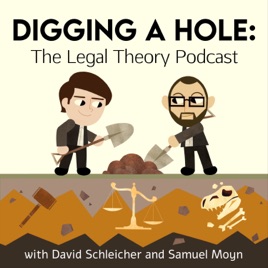
Advertise on podcast: Digging a Hole: The Legal Theory Podcast
Rating
4.8 from
Country
This podcast has
55 episodes
Language
Publisher
Explicit
No
Date created
2020/10/01
Average duration
60 min.
Release period
34 days
Description
Yale Law School professors Samuel Moyn and David Schleicher interview legal scholars and dig into the debates heard inside law school halls.
Podcast episodes
Check latest episodes from Digging a Hole: The Legal Theory Podcast podcast
Robert Post
2024/02/20
Welcome back, devoted listeners, and say hello to season eight of Digging a Hole, where we’ve got an extraordinarily stacked lineup just waiting in the wings. To make up for the cold, cold months where you had to get your legal theory fix from reading articles (boring) or attending faculty workshops (ugh), we’re kicking off the season with a mammoth episode about a mammoth book. Today’s guest is the former dean and current Sterling Professor of Law at Yale Law School, and Co-Reporter for the American Law Institute, Robert Post, here to talk about Volume 10 of the Oliver Wendell Holmes Devise History of the Supreme Court of the United States (aka the official biography of SCOTUS), The Taft Court: Making Law for a Divided Nation, 1921 to 1930.
From the outset, Post sets the stage for his argument that the Taft Court and the 1920s are an important but underappreciated time in American legal history. We discuss how the Taft Court grows out of and evolves according to two social questions wrenching the nation – the First World War and Prohibition. Next, we talk about the different theories of sovereignty and democracy as represented by the different wings of the court, with Taft playing counterpoint to lionized jurists Brandeis and Holmes. Sam, angling for his dream job of author of Volume 14 of the Devise, peppers Post with questions about formalism, realism, and consequentialism. We’re not kidding when we say that’s only half the episode – but, listeners, the second half is a can’t-miss if you care about Taft the master administrator, judicial politics, and the power of the Supreme Court. We hope you enjoy.
This podcast is generously supported by Themis Bar Review.
Referenced Readings
A Muted Fury: Populists, Progressives, and Labor Unions Confront the Courts, 1890-1937 by William G. Ross
more
Cass Sunstein
2023/12/11
Like George Santos’s tenure in Washington and Tim Scott’s rousing presidential campaign, all good things must come to an end, and so we wave goodbye to season seven of Digging a Hole. Our last guest of this season needs no introduction: according to our team of in-house scientists, if you stacked a penny for each citation he’s received, the tower of pennies would reach almost 1,000 feet high (which, frankly, is not as tall as our scientists expected but is taller than any other scholar’s penny tower). That’s right – our guest today is an author of a best-selling book about Star Wars, the former Administrator of the Office of Information and Regulatory Affairs, and current Robert Walmsley University Professor at Harvard Law School: Cass Sunstein, here to talk about his new book, How to Interpret the Constitution.
We begin by laying out the thesis of the book: that we must have a theory of interpreting the Constitution that comes from outside the Constitution, and that we should choose the interpretive theory that makes our nation the best off. That simple? Sam and David don’t think so, and we discuss what it means to make our nation better off, why we need to choose an interpretive theory in the first place, and how we might revise the thesis on a more institutional view. Next, we look at judicial politics and restraint through the specter that haunts our podcast, James Bradley Thayer. And finally, we get to the bottom of Sunstein’s predictive judgments about the future of constitutional interpretation and American democracy.
See you next year.
This podcast is generously supported by Themis Bar Review.
Referenced Readings
“Blasphemy and the Original Meaning of the First Amendment”
“The Forum of Principle” by Ronald Dworkin
“Efficiency vs. Welfare in Benefit-Cost Analysis: The Case of Government Funding” by Zachary Liscow and Cass Sunstein
more
Jennifer Burns
2023/12/04
It’s the last month of the year and soon (but not yet!), it’ll be the last podcast of the season. We had a lot of people write in about our last episode and so this Christmas, on behalf of all of you, we’ll ask Santa for more Digging a Hole. But before we leave out some milk and cookies, we’ve still got some great episodes for you. Today, we’ve got a pre-recorded episode that – can you believe it – couldn’t be aired for contracts (?!) reasons. But the embargo has been lifted! And here on the pod to talk about no less than a prince of free trade is Jennifer Burns, Associate Professor of History at Stanford University, discussing her new book, Milton Friedman: The Last Conservative.
David and Sam start off by making Burns defend the subtitle of the book – was Friedman really the last conservative? Then we discuss the breadth of Friedman’s life and the breadth of Burns’s book, which travels the terrain of the intellectual history of economics to the study of Friedman as libertarian and television celebrity. We get deep into the debate between Keynesianism and monetarism – no math required, but make sure you’ve done your macro readings. Sam wants to know if the book is too easy on Friedman, especially his involvement in Chile. David wants to know if Friedman surrounded himself by sycophants to duck debates. And amidst all of that, Burns makes the case for Friedman as an underappreciated economic thinker who might be right about charter schools. Yes, we know that’s a lot. We hope you enjoy.
This podcast is generously supported by Themis Bar Review.
Referenced Readings
“The Mighty Wurlitzer Plays On” by Tim Barker
more
Will Baude
2023/11/16
Listeners – our apologies. We’ve given you interesting topic after interesting topic, distinguished guest after distinguished guest. But we’ve strayed from the promise of the podcast, which is legal theory, and legal theory means arguing ad nauseam about whether we’re positivists or normativists. For a recent intervention in that debate, we’re delighted to bring you today’s guest, William Baude, the Harry Kalven, Jr. Professor of Law and Faculty Director of the Constitutional Law Institute at the University of Chicago Law School and a member of the Presidential Commission on the Supreme Court of the United States, to discuss his 2023 Scalia Lecture at Harvard Law School, “Beyond Textualism?”.
We recommend you give the paper a skim before listening – Sam and David don’t waste any time getting into it on this episode. David presses Baude on the relationship between textualism and democracy while Sam is skeptical that Baude’s project is properly textualist at all. Next, we try to make sense of how the law-policy distinction maps onto the common law and the so-called general law past and present. Our tour continues to statutory interpretation before we get to the normativist-positivist debate (or: what’s the difference between Will Baude and Adrian Vermeule?). We end by discussing Baude’s recent foray into celebrity and whether the Constitution bars Donald Trump from running for president.
This podcast is generously supported by Themis Bar Review.
Referenced Readings
A Matter of Interpretation by Antonin Scalia
“Finding Law” by Stephen Sachs
“General Law and the Fourteenth Amendment” by Will Baude, Jud Campbell, and Stephen Sachs
Legalism by Judith Shklar
“The ‘Common-Good’ Manifesto” by Will Baude and Stephen Sachs
“The Real Enemies of Democracy” by Will Baude
more
Daniel Ziblatt
2023/10/24
Squarely in the heart of the Trump administration, Steven Levitsky and Daniel Ziblatt published a book titled How Democracies Die which proved enormously popular. Celebrities read it. Obama read it. Most people you know probably pretended to have read it. Five years later, Levitsky and Ziblatt are back with a sequel of sorts, arguing that in the United States, democracy might never have been fully alive in the first place, strangled in the cradle by our very own constitution. To explain how their thinking has changed since How Democracies Die and discuss the new book, Tyranny of the Minority, we’re thrilled to have on today’s podcast Daniel Ziblatt, Eaton Professor of Government at Harvard University and director of the Transformations of Democracy group at Berlin's Social Science Center.
In this episode, we poke around into all of the different ways the United States privileges minoritarian politics. Ziblatt explains that a major contribution of Tyranny of the Minority is showing how regular politics interact with our constitution’s minoritarianism to create a particularly potent anti-democratic danger for the United States. We discuss the legislative advantage minorities have in the U.S. thanks to our love of holding onto grand old traditions like the filibuster and what that means for statutory interpretation. Democratic backsliding, the advantages of party politics, papal smoke and mirrors–it’s all in there. We hope you enjoy.
This podcast is generously supported by Themis Bar Review.
Referenced Readings
How Democracies Die by Steven Levitsky and Daniel Ziblatt
Democratic Justice: Felix Frankfurter, the Supreme Court, and the Making of the Liberal Establishment by Brad Snyder
“Inside or Outside the System?” by Eric Posner and Adrian Vermuele
After Misogyny: How the Law Fails Women and What to Do about It by Julie Suk
The Anti-Oligarchy Constitution: Reconstructing the Economic Foundations of American Democracy by Joseph Fishkin and William Forbath
“The Insulation of Local Governance from Black Electoral Power: Northern Cities and the Great Migration” by Jacob Grumbach, Robert Mickey, and Daniel Ziblatt
more
Emma Kaufman
2023/10/17
As the Supreme Court moves forward with its administrative state agenda, we thought we’d get in on the action and make sure we understand what exactly that agenda even is. Lucky for us, we’ve got some friends who can shed light on that matter. On today’s episode, we’re joined by Emma Kaufman, Professor of Law at New York University Law School, to discuss her paper, co-authored with previous pod guest Adam Cox, “The Adjudicative State.”
In this episode, we talk about the administrative state as a neglected site of adjudication and agency adjudication as a neglected site of administration. First, Professor Kaufman explains how her past research on immigration helped her identify and break through these blind spots. Next, we talk about how best to achieve equal justice under the law. Should we follow the legal academy, and half the op-eds in the New York Times, and leave politics out of courts? Or should we politicize justice entirely? (It turns out politicizing administration is complicated anyway!) Finally, Professor Kaufman leaves us with a bit of a cliff-hanger – stay tuned for her history of private prosecution and tune in to find out how it related to the rest of the topics on today’s pod.
This podcast is generously supported by Themis Bar Review.
Referenced Readings
“1930s Redux: The Administrative State Under Siege” by Gillian Metzger
more
J.B. Ruhl and Jim Salzman
2023/09/29
After a long summer vacation, we’re thrilled to be back for season seven of Digging a Hole! Just a couple of weeks ago we were baking; now we’re surviving storm after storm, quivering and quaking. Climate change, huh? Here on the pod to discuss their forthcoming paper on how environmental law can help get us out of our existential crisis, “The Greens' Dilemma: Building Tomorrow's Climate Infrastructure Today” are J.B. Ruhl, the David Daniels Allen Distinguished Chair in Law at Vanderbilt Law School, and Jim Salzman, the Donald Bren Distinguished Professor of Environmental Law at the UCLA School of Law.
What is the Greens’ Dilemma – and is it even a dilemma exactly? Sam and David have their doubts, but Professors Ruhl and Salzman lay out what they think the dilemma that environmentalists face is, why it’s a dilemma, and their proposed solution to it. Professors Ruhl and Salzman discuss coalition building for green infrastructure and why they might be able to get both progressives and conservatives on board. Is a rapid transition to clean energy and negative emissions compatible with environmental justice (EJ)? Our guests answer with an emphatic yes but ask you, our argumentative listeners, to engage and disagree.
This podcast is generously supported by Themis Bar Review.
Referenced Readings
“Samuel Moyn Can’t Stop Blaming Trumpism on Liberals” by Jonathan Chait
Mine!: How the Hidden Rules of Ownership Control Our Lives by Michael Heller and Jim Salzman
“What Happens When the Green New Deal Meets the Old Green Laws?” by J.B. Ruhl and Jim Salzman
Public Citizens: The Attack on Big Government and the Remaking of American Liberalism by Paul Sabin
more
David Schleicher
2023/06/01
As Punxsutawney Phil to winter are we to summer; and today, we celebrate a very special end-of-season episode. Sam is joined by guest co-host Noah Rosenblum, Assistant Professor of Law at New York University School of Law, to discuss work by our very own David Schleicher. David’s new book, In a Bad State: Responding to State and Local Budget Crises, which is both a romp through the American history of state and local debt as well as a mirror-for-princes for bankruptcy judges and administrators, all while standing at a parsimonious 171 pages, is out today.
David first introduces his concept of the fiscal trilemma: that when responding to state and local budget crises, the American federal government must choose between bailing out state local and governments, imposing austerity measures, or letting them default. This framework opens up a wide-ranging conversation from infrastructure financing, where we discuss the Erie Canal and Alexandria Ocasio-Cortez, to the value-added tax, where David argues that the European tax system is a third way between AEI and Brookings. Oh, and because we’re a legal theory podcast, there’s lots of discussion of history, the nineteenth- and twentieth-century Supreme Court as a bunch of political hacks, and how the Great Recession and COVID have changed the political and legal landscape of public finance. Listen to this pod, buy David’s book, have a wonderful summer, and we’ll see you back in the fall.
This podcast is generously supported by Themis Bar Review.
Referenced Readings
Why Cities Lose: The Deep Roots of the Urban-Rural Political Divide by Jonathan Rodden
“The Dilemma of Odious Debts” by Mitu Gulati, Lee C. Buchheit, and Robert. B. Thompson
Courthouse Architecture, Design and Social Justice edited by Kristy Duncanson and Emma Henderson
The Prince by Niccolò Machiavelli
more
Julie Suk
2023/04/11
The sun is shining, the flowers are blooming, and David’s back on the pod. More importantly, we’re thrilled this week to be joined by Julie Suk, Professor of Law at Fordham University School of Law in New York City, to discuss her new book After Misogyny: How the Law Fails Women and What to Do about It. After Misogyny, like much of Professor Suk’s scholarship, including her first book, is impressively interdisciplinary, centering women and gender in the legal, historical, sociological, and political stories of liberal constitutionalism.
After Sam lays out all of the different fields that After Misogyny contributes to, ranging from feminist legal theory to comparative constitutionalism, Professor Suk explains her focus on the structural and legal aspects of misogyny. We discuss Professor Suk’s appropriation of the term “unjust enrichment” from private law, and how it explains what, on her view, is wrong with misogyny. Come with us on a journey through Prohibition and the fight for the Equal Rights Amendment in America and cross the pond to Sweden, Ireland, and France. We round out our wide-ranging conversation discussing the limits, but also the necessity, of legal and constitutional approaches to social problems. All this and more on this week’s pod – take a listen and find out.
This podcast is generously supported by Themis Bar Review.
Referenced Readings
Down Girl: The Logic of Misogyny by Kate Manne
The War on Alcohol by Lisa McGirr
Last Call: The Rise and Fall of Prohibition by Daniel Okrent
Of Boys and Men: Why the Modern Male Is Struggling, Why It Matters, and What to Do about It by Richard Reeves
more
Duncan Kennedy
2023/04/04
This episode, we swap out one legend of legal theory for another. Goodbye David, hello to our guest – the one and only Duncan Kennedy! As part of a course he’s teaching at Yale Law School, Foundations of American Legal Thought, Sam interviewed Professor Kennedy in front of a live audience on March 8, 2023. Professor Kennedy, the Carter Professor of General Jurisprudence, Emeritus, at Harvard Law School, is a legal and social theorist and one of the founding members of the Critical Legal Studies movement.
We learn about Professor Kennedy’s experience as a student at Yale Law School (three cheers for insider baseball) and his experience with so-called generational revolt. Next, we turn to his academic accomplishments: Professor Kennedy discusses some of his early articles, which were instrumental in the origins of the so-called Critical Legal Studies movement. Finally, we conclude the conversation with a discussion of the Law and Political Economy movement. Many of our listeners might be familiar with LPE, and might even have wondered what the CLS vanguard have to say about it. Give this pod a listen to find out.
This podcast is generously supported by Themis Bar Review.
Referenced Readings
The Transformation of American Law, 1780-1860 by Morton Horwitz
“Legal Formality” by Duncan Kennedy
The Rise and Fall of Classical Legal Thought by Duncan Kennedy
“Form and Substance in Private Law Adjudication” by Duncan Kennedy
Social Thought in America: The Revolt Against Formalism by Morton White
“The Structure of Blackstone’s Commentaries” by Duncan Kennedy
“In Defense of Rent Control and Rent Caps” by Duncan Kennedy
more
Sam Issacharoff
2023/03/14
This week, we’re joined by dual-wielding complex and aggregate litigation and law of democracy scholar Samuel Issacharoff to discuss his new book Democracy Unmoored: Populism and the Corruption of Popular Sovereignty. Sam Issacharoff, the Bonnie and Richard Reiss Professor of Constitutional Law at NYU Law and one of our leading democratic theorists, has written extensively on the role of courts in strengthening and protecting democracy and the democratic process.
Sam and David begin the podcast by poking the bear – isn’t populism a little passe? Professor Issacharoff doesn’t back down, pointing to his Argentine background and global focus, as well as his institutional expertise, as offering a new perspective on the conversation. Professor Issacharoff then talks economics and inequality before defending, championing, and even glamorizing (?!) political parties. This is a legal theory podcast, so we turn to courts and his theory of judicial intercession, but it’s also our legal theory podcast, so we learn some theology lessons along the way. We end the way we started, with Sam being a little cheeky and Sam Issacharoff demonstrating the timeliness of his book.
This podcast is generously supported by Themis Bar Review.
Referenced Readings
“Would You Date a Podcast Bro?” by Gina Cherelus
Fragile Democracies: Contested Power in the Era of Constitutional Courts by Sam Issacharoff
The Narrow Corridor: States, Societies, and the Fate of Liberty by Daron Acemoglu and James A. Robinson
“Revenge of the Centrist Dads” by Janan Ganesh
more
James Bradley Thayer
2023/02/21
Another episode, another student of David and Sam’s on the podcast. Except this time, we have a current student instead of a former one! In this episode, a joint Lillian Goldman Law Library book talk-Digging a Hole production that took place in front of a live audience on January 23, 2023, we interview Yale Law student Jake Mazeitis and Wick Cary Associate Professor at the University of Oklahoma Andrew Porwancher on their book The Prophet of Harvard Law: James Bradley Thayer and His Legal Legacy.
We begin by discussing just who exactly James Bradley Thayer was and his contributions to the structure of American constitutional law. We dive into his intellectual and personal legacies, his litany of students who shaped American jurisprudence, and ruminate on the student-teacher relationship. Our guests develop an idea of what it means to be Thayerian, and how we all live with Thayer’s legacy – and even praise/accuse Sam of being a bona fide Thayerian. Finally, we discuss Thayer’s democratic motivations and the limits of his legal realism before turning it over to the audience for a few questions.
This podcast is generously supported by Themis Bar Review.
Referenced Readings
“Constitutionality Of Legislation: The Precise Question for a Court” by James Bradley Thayer
“The Origin and Scope of the American Doctrine of Constitutional Law” by James Bradley Thayer
“Becoming Brahmin: A Country Boy's Journey to Harvard Yard” by Andrew Porwancher and Austin Coffey
more
Podcast reviews
Read Digging a Hole: The Legal Theory Podcast podcast reviews
Viveca1
2020/12/31
Bravo!
Fabulous and fascinating interviews! Thank you for making this! Looking forward to listening to more in 2021. 🙂
imnotcreativeenuff4thizshiz
2020/10/12
Thank you Sam!
A delight and a wonderful service during the coronavirus exile
Podcast sponsorship advertising
Start advertising on Digging a Hole: The Legal Theory Podcast & sponsor relevant audience podcasts
You may also like these social sciences Podcasts

5
15
69
3 Pie Squared - ABA Business Leaders
Stephen Smith

4.9
144
315
The Bulletproof Musician
Noa Kageyama

5
1
96
PRIO's Peace in a Pod
Peace Research Institute Oslo
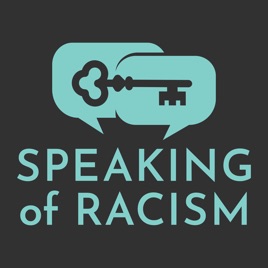
4.7
175
77
Speaking of Racism
Speaking of Racism
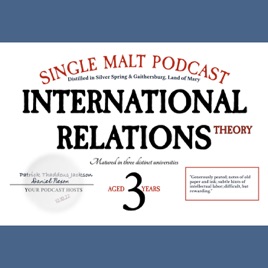
4.9
34
33
Whiskey & International Relations Theory
Drs. Patrick Thaddeus Jackson & Daniel Nexon
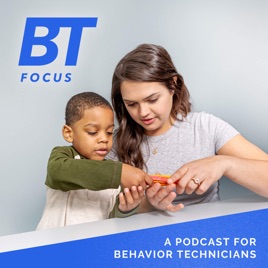
4.3
10
60
BT Focus
Centria Autism

4.7
29
96
One in Ten
National Children's Alliance

4.6
39
84
The Abnormal Psychologist
Dr. Colby Taylor

4.3
18
170
SAGE Sociology
SAGE Publications Ltd.
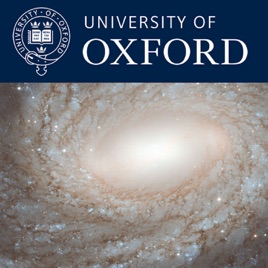
4
29
93
The Secrets of Mathematics
Oxford University



